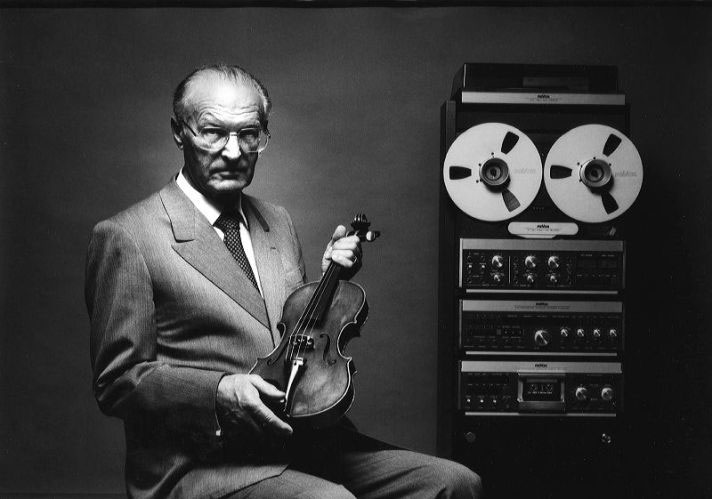Hi-Fi Hall of Fame
People Inductee
Wilhelm “Willi” Studer
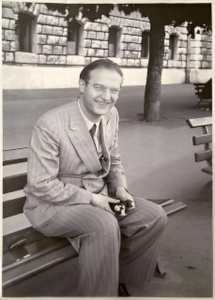
Introduction
Our next inductee is Wilhelm (Willi) Studer, a Swiss entrepreneur who founded Studer and ReVox, two iconic names in the world of Hi-Fi.
Let’s look at the many accomplishments of Willi Studer.
Willi Studer: Early Days
Wilhelm (Willi) Studer was born on 17 December 1912. As a young man, he worked in his father’s woodworking and cabinetry business for a while, then took a position in a photography and radio shop, where he worked as a salesman and radio technician. He sold and repaired radios there, all the while teaching himself how to design and build radio receivers.
In 1932, at the ripe old age of 19, Willi Studer founded his first company, called “Tell”. Tell manufactured radio receivers using Willi’s radio expertise and his father’s cabinetry skills. The products were of high quality, but the market demand was not sufficient, so the company did not last long. Nevertheless, Studer, who did not have any formal training as an engineer, received a radio engineering education and became a successful product designer.

Studer’s friend Hermann Holzheu founded the company “Sondyna AG” in Zurich around the same time, and Willi Studer was soon hired to be chief designer at Sondyna. Many of Sondyna’s radios were developed and designed by Willi Studer. Studer’s parents moved to Zurich, where his father Gottfried Studer produced the cabinets for the Sondyna radios in his carpentry shop.

Studer spent part of 1942 in the Swiss army, while World War II raged all around Europe. After leaving the military, he worked as chief designer at Schwachstromtechnik AG in Zurich. The amplifier systems and radio receivers he developed there were called “Televox”.
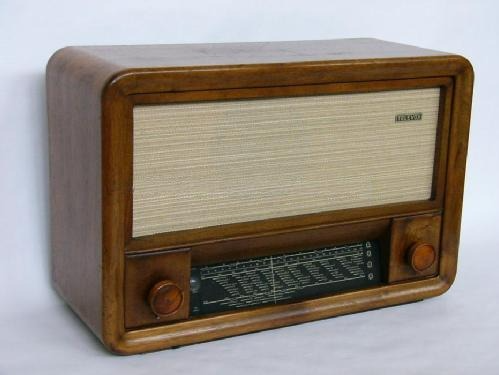
By 1943 he was ready for another venture, and he founded the “Metrohm” company together with Berthold Suhner in Herisau, Switzerland. They spent the next few years constructing measuring instruments and equipment for high frequency and medical technology. Metrohm is still in business today, producing laboratory quality test equipment.
Although Metrohm was successful, the two founders eventually agreed to go separate ways, and so Willi Studer started up another company, called “Fabrik für Elektronische Apparate” on January 5, 1948. The company initially manufactured oscilloscopes, which are complex machines useful for electronic design and repair. Within a few years, however, this company would evolve into two world famous brands, Studer and ReVox.
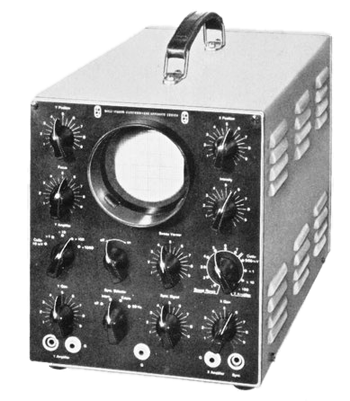
Willi Studer’s First Foray into Tape Recording
Hans Caspar was a Zurich dentist and aspiring businessman and a friend of Willi Studer. Caspar began importing American-made Brush “Soundmirror” tape recorders into Switzerland, hoping to capitalize on their innovative technology. However, these recorders proved to be a disappointment, both in terms of quality and compatibility with European power grids. Their reliance on 110 volt power, a detail Caspar had overlooked, rendered them unusable in most of Europe, where 220 volt power was the norm.
Recognizing the need for a solution, Caspar turned to his friend Willi Studer. He knew Studer’s technical expertise and believed he was the best person capable of adapting these devices for the European market. Studer, introduced to the Soundmirror recorders by Caspar, was immediately intrigued by the challenge.
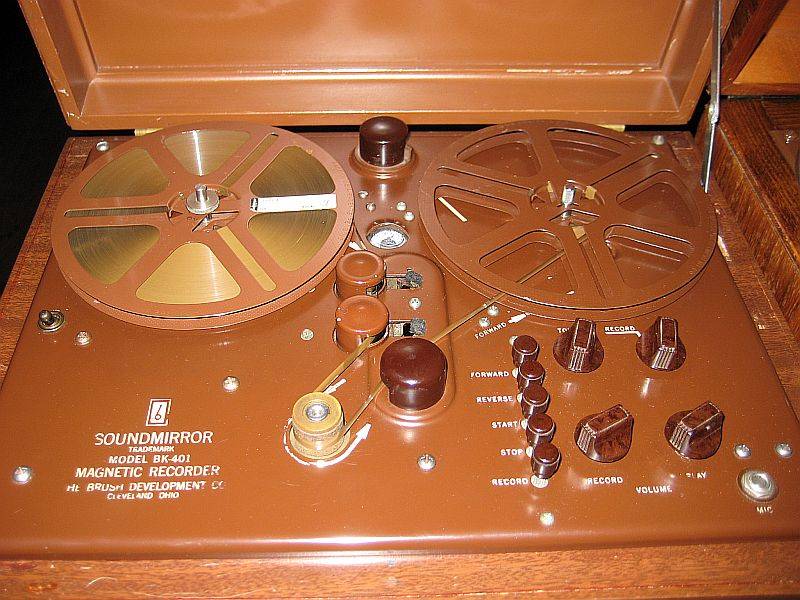
Studer began converting the imported recorders. He quickly discovered that the quality of the devices was so poor that they required extensive overhauls. Rollers, friction wheels, and many other components of the Soundmirror recorders often needed replacement. Faced with the prospect of investing significant time, materials, and money, Studer began to doubt the feasibility of converting these devices.
Studer decided that he could do better by building his own tape recorders “from scratch”. He made the proposal to his friend Caspar, who agreed, and Willi Studer started design of his own tape recorder. The first products were ready for the market in 1949. These were single track, open reel recorders, and were branded as “Dynavox”. They were excellent quality, and Caspar was able to sell a few hundred of them.
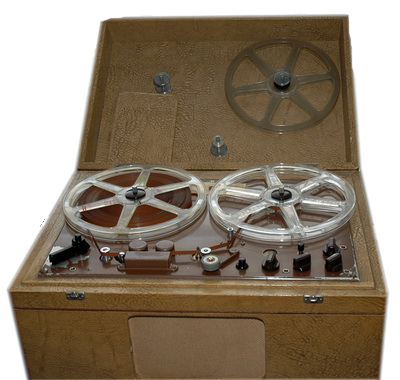
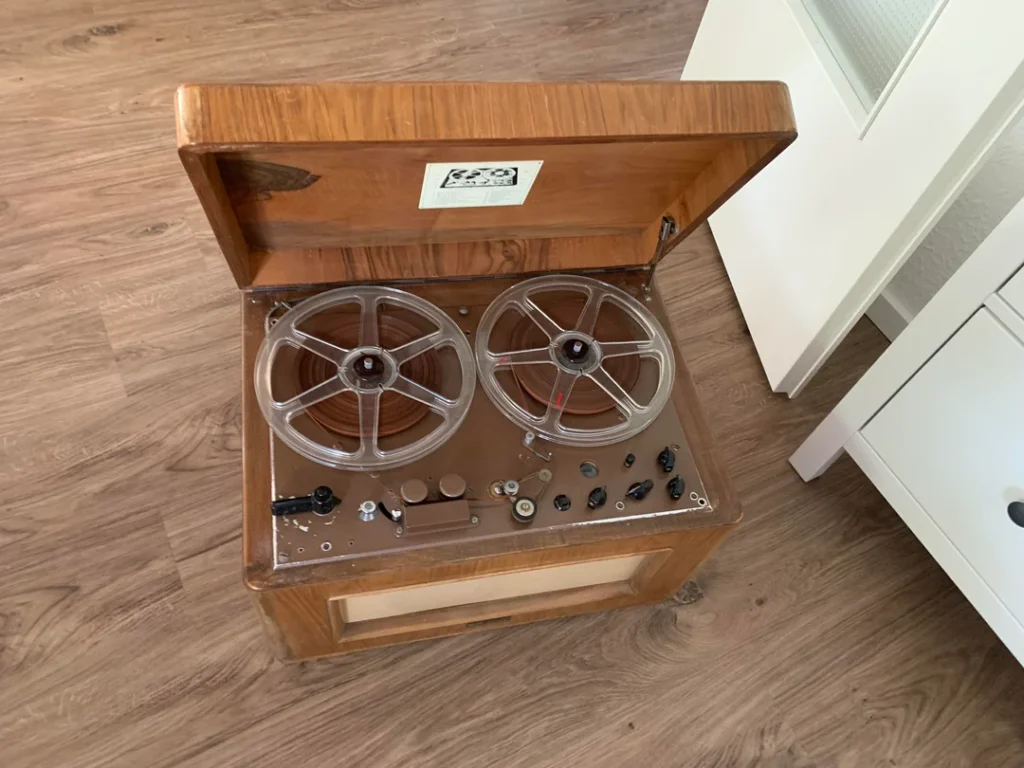
Introduction of the ReVox Brand
By 1951, the company was doing well manufacturing and selling tape recorders under the “Dynavox” name, but Studer decided a new name was required for the company. He introduced the ReVox brand, marking a significant milestone in the company’s history. The first product under the new brand was the ReVox T26 tape recorder, which was based on the earlier Dynavox model. The T26 was notable for its exceptional quality, making it popular in both professional and consumer markets. This success laid the foundation for Willi Studer’s reputation in the audio equipment industry.
The new ReVox T26 made a great impression when it was used for the prestigious recording of the “International Music Festival Lucerne”. This boosted sales of the recorder, especially with professionals. Production of the ReVox T26 continued virtually unchanged until 1955.
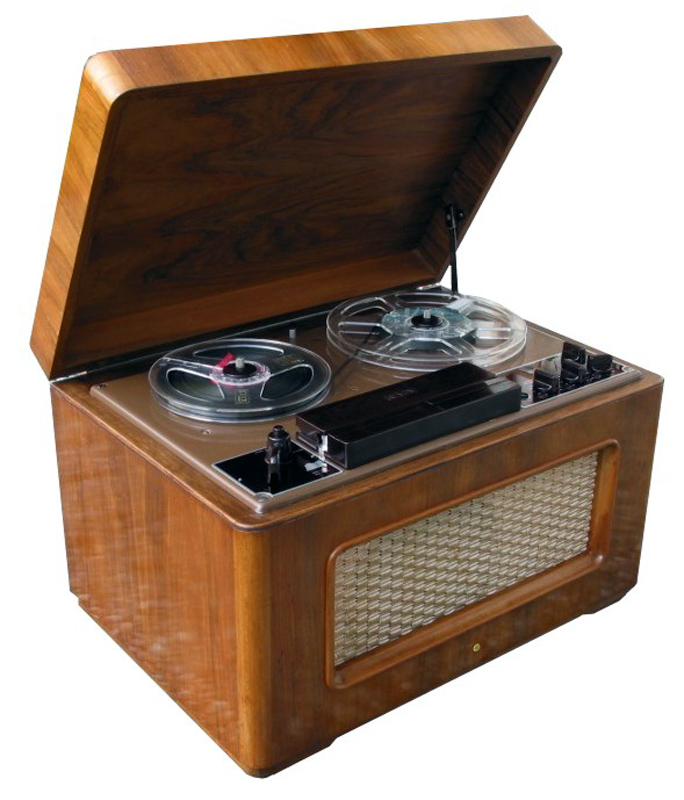
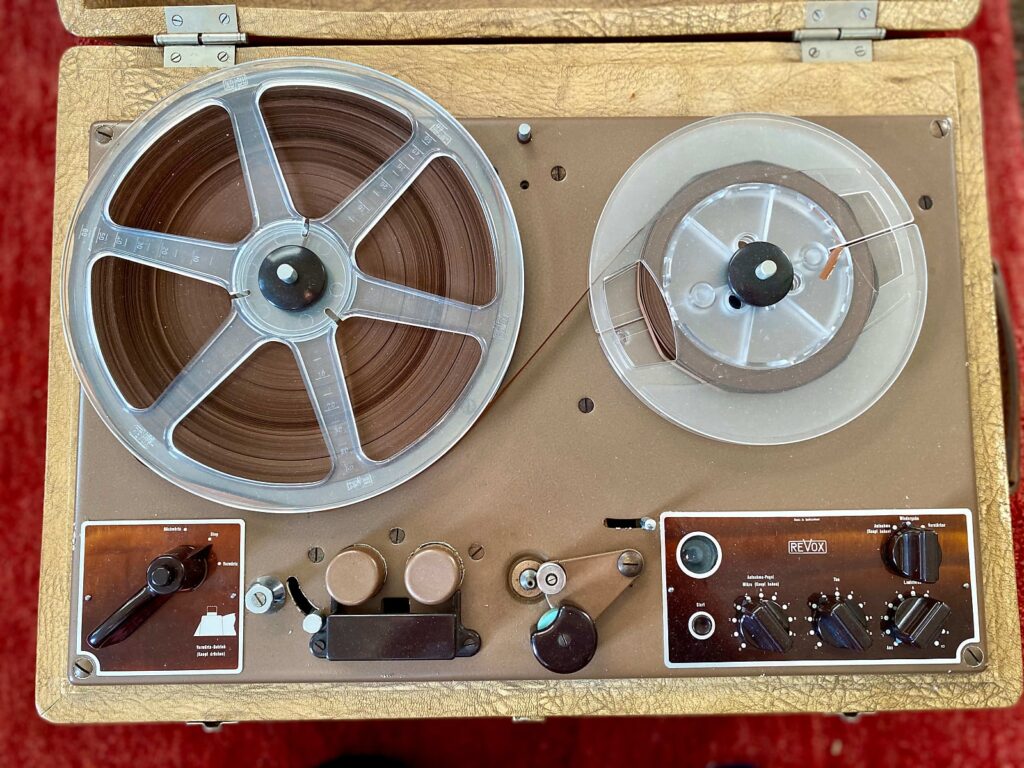
Ever since then, ReVox has continued to innovate and expand its product line. The company became known for its high quality tape recorders, which were widely used in broadcasting and recording studios. Willi Studer’s commitment to quality and innovation was a driving force behind the company’s success. His vision was to create products that met the highest standards of performance and reliability.
Introduction of the Studer Brand
In 1952, just a year after launching the ReVox brand, Willi Studer decided to build a line of professional studio equipment. To differentiate the professional line from the consumer line, he chose his own surname “Studer” as the new brand name. One of the company’s first products was the Studer A27 tape recorder which was designed for use primarily in radio stations.
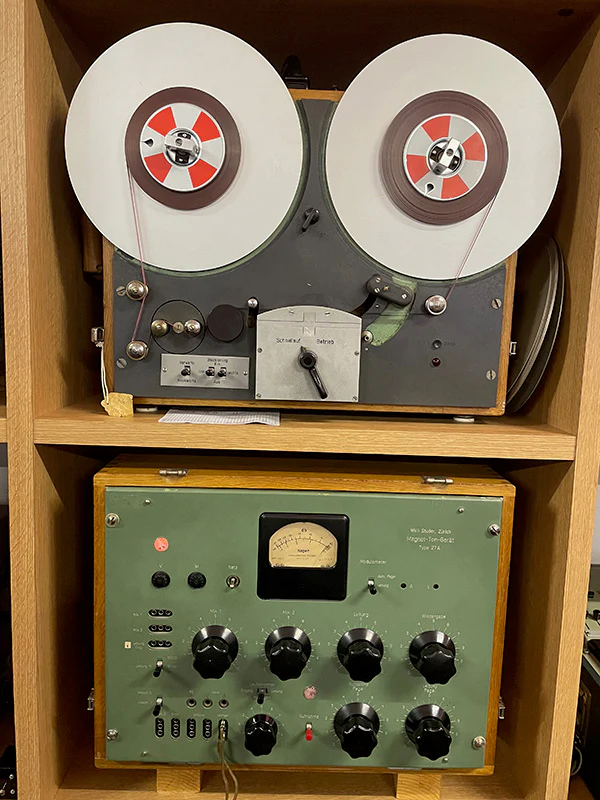
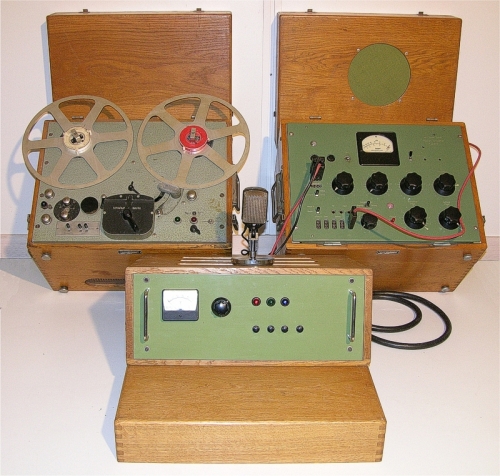
Over the years, the Studer company has produced many superb tape recorders for the professional market. The Studer C37, which was in production from 1961 to 1970, was an improved version of the original model 27.
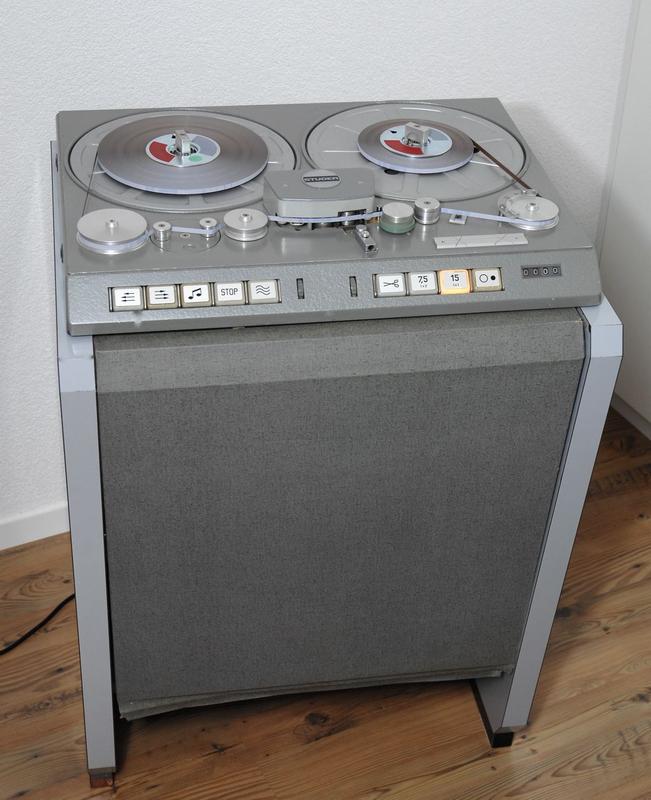
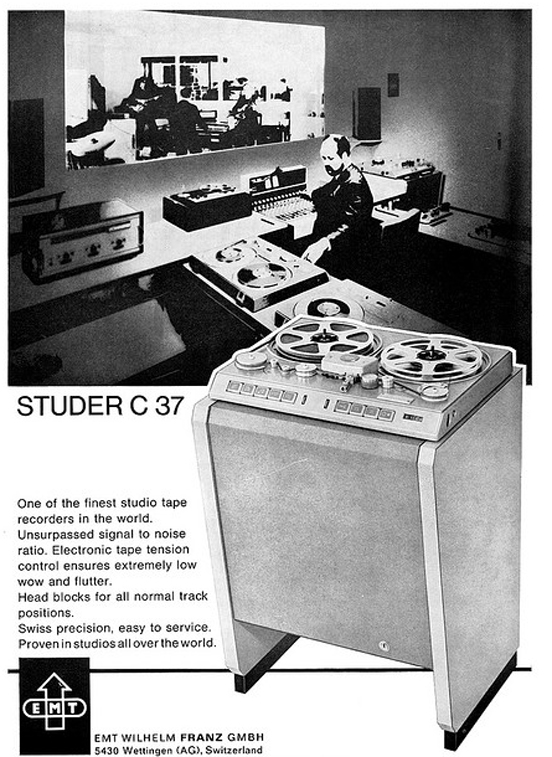
A multi-channel version of the Studer C37 tape recorder, called the J37, was used by the Beatles to record their album of the same name at Abbey Road Studios. This brought the company and its products worldwide recognition.
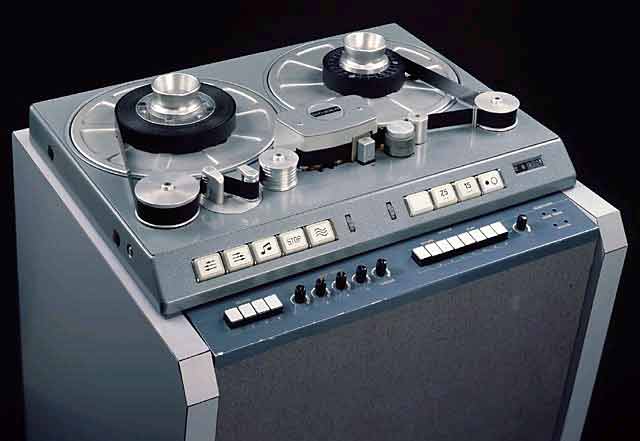

The Studer A80 was the best selling Studer tape machine of all time. It was in production for a remarkable 18 years, from 1970 until 1988. Many of the most famous music productions from this period were produced with the A80, including albums from ABBA, Pink Floyd (The Dark Side of the Moon), and Frank Zappa. The Studer A80 was such a good machine that it allowed creative people, talented musicians and producers, to record their best work and make it sound great.
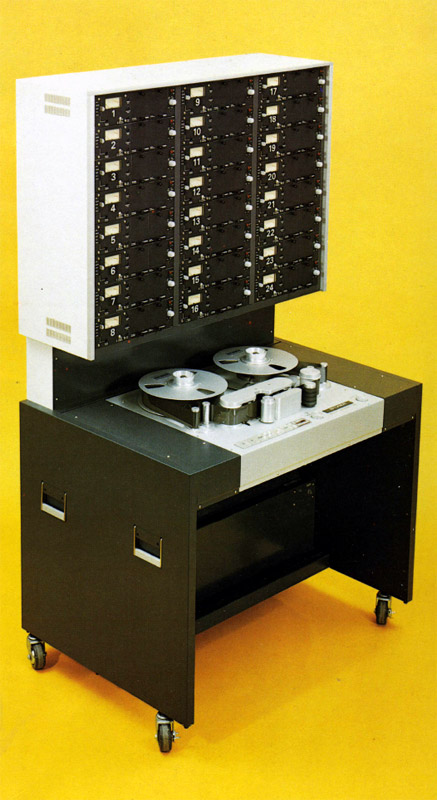
ReVox “36” Series Recorders
One of ReVox’s most iconic products was the “36” Series of open reel tape recorders. In 1956, ReVox produced the first successor to the original T26 recorder. The new machine was called the A36, and this would be the first in a long line of very successful “36” series recorders from ReVox. Each new generation in the series added some new functionality or enhanced performance.
One thing that all of the “36” machines had in common was the use of vacuum tubes. This was before the introduction of solid state components and so all of the controls and audio processing were done with tubes. Nonetheless, Willi Studer and his designers did a great job and the A36 was a great performer, rugged, and attractive. It employed three motors, just like many professional recorders.
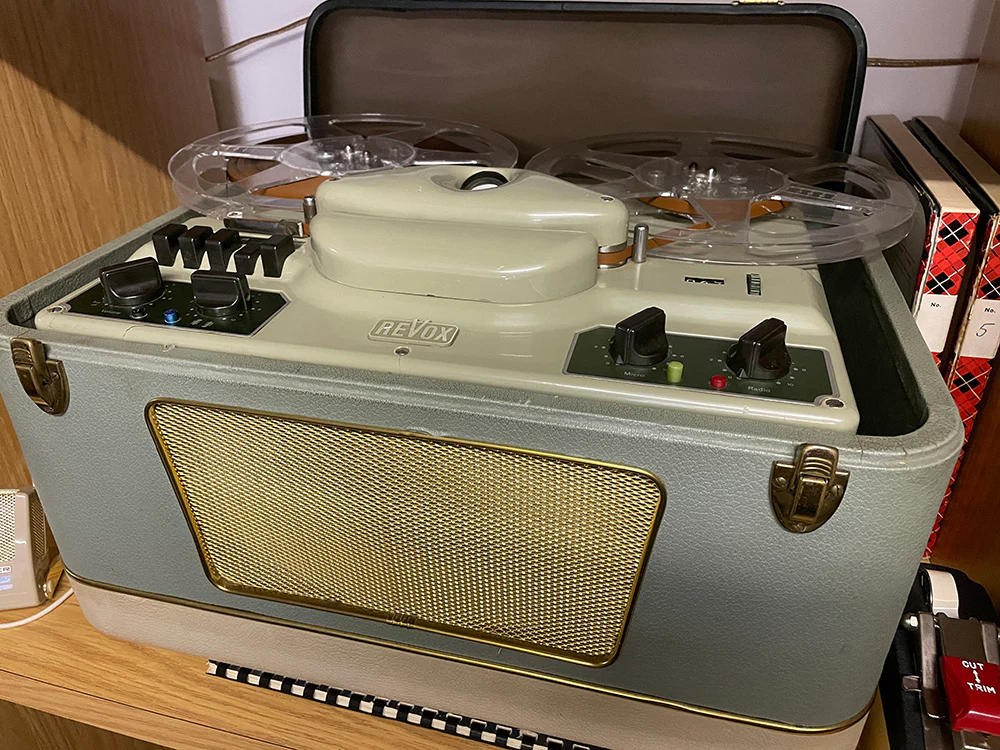
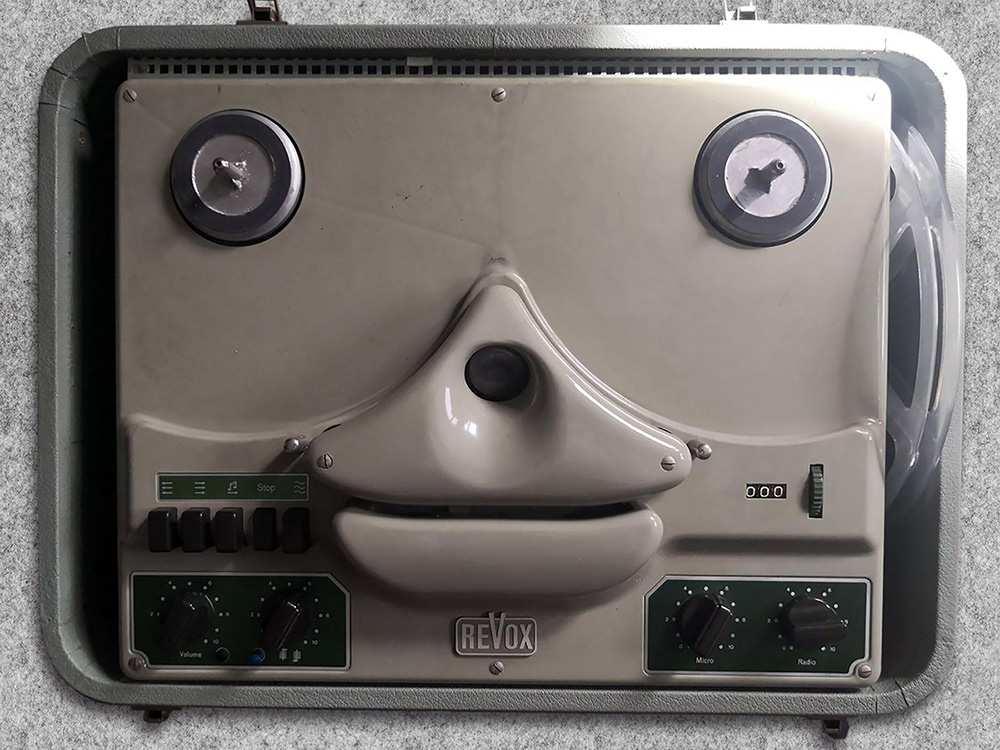
The B36 was introduced in 1957 and it employed separate recording and playback heads for better audio quality. The B36 series was one of the first tape recorders designed for the amateur but with the performance of a professional machine.
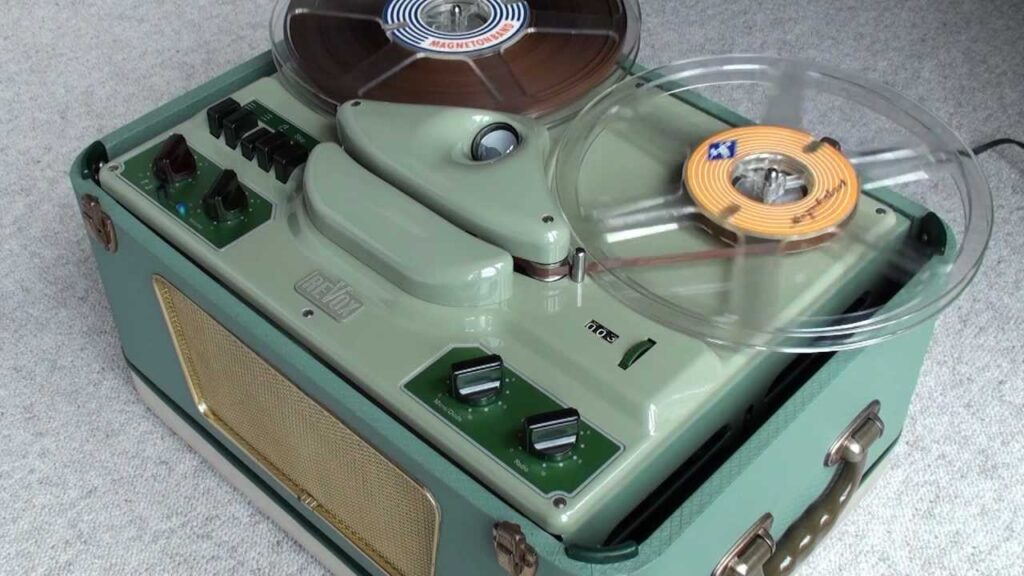
By 1960 there was a lot of demand for stereo (2 channel) equipment, so ReVox produced the D36 which could record and play in stereo using either two track or four track recording.

ReVox continued to refine the 36 series until 1967 when the final model in the series, the G36, was produced. From beginning to end, ReVox sold more than 80,000 tape recorders of the 36 series, which is a remarkable feat for an open reel recorder.
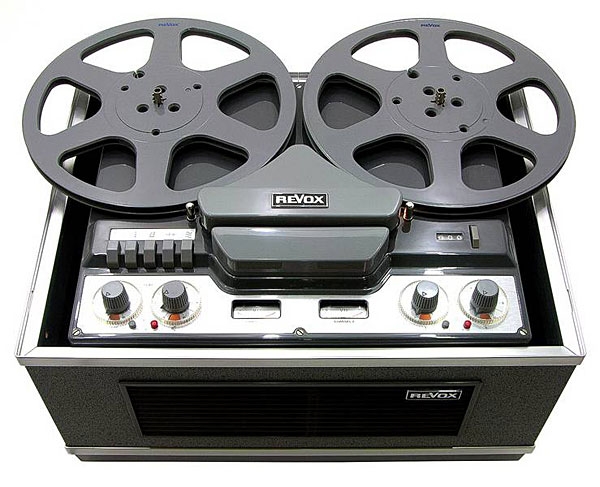
ReVox 77 Series Recorders
Of course, Willi Studer was not done yet. Solid state technology and improved motors and materials made it possible to produce a superb open reel recorder for the home Hi-Fi market, and so ReVox introduced the “77” series of recorders in 1970.
The A77 was a groundbreaking design that set new standards for reel-to-reel tape recorders. Its three-motor design ensured precise tape transport, while its solid construction and high-quality components provided exceptional reliability. The A77 was also highly customizable, allowing users to choose from a variety of options, including different tape speeds and playback heads.
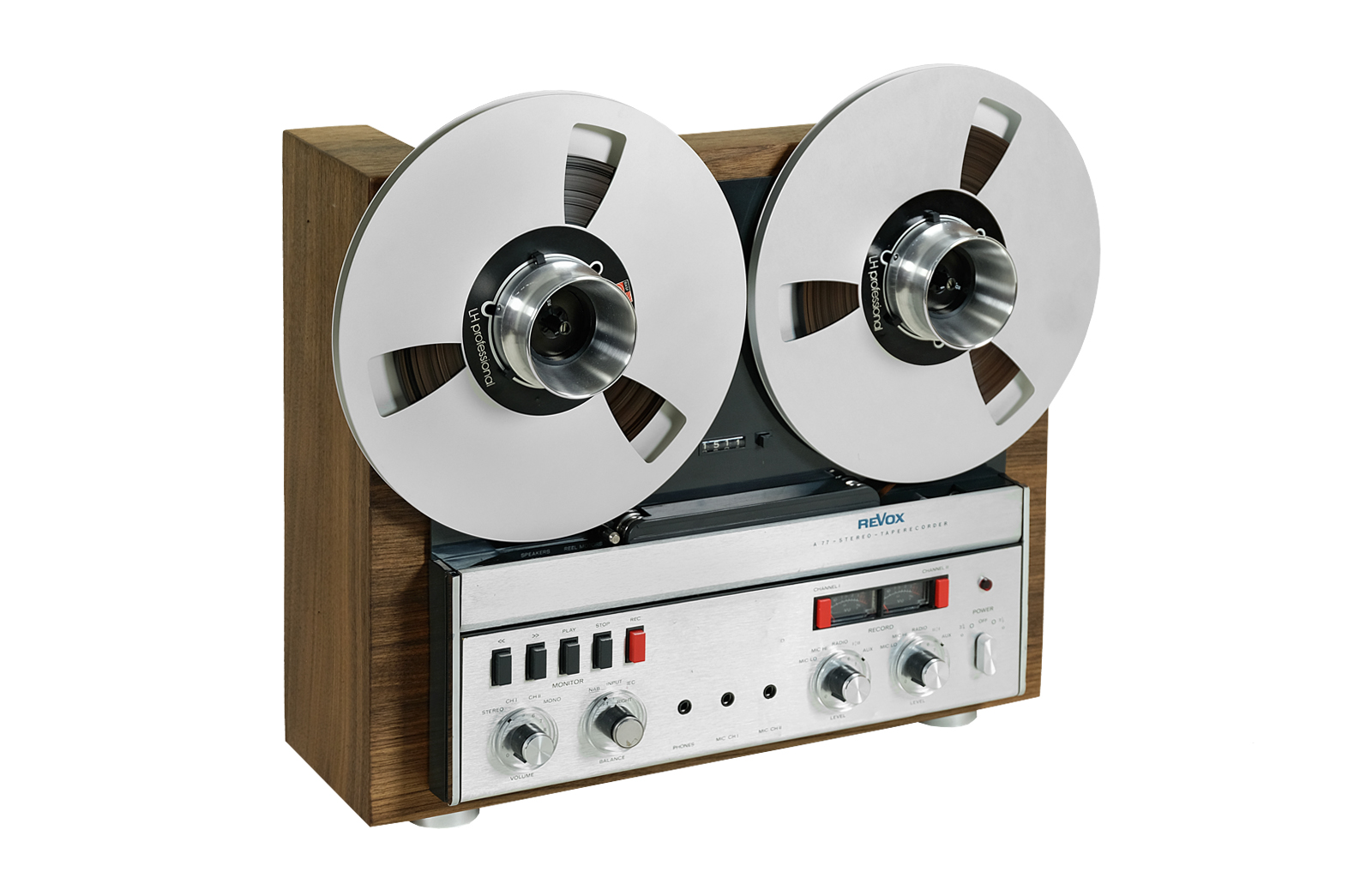
There were four versions of the A77 produced, starting with the Mark I and ending with the Mark IV in 1977. These were the most successful series of ReVox tape recorders ever made, with hundreds of thousands sold to audiophiles around the world.
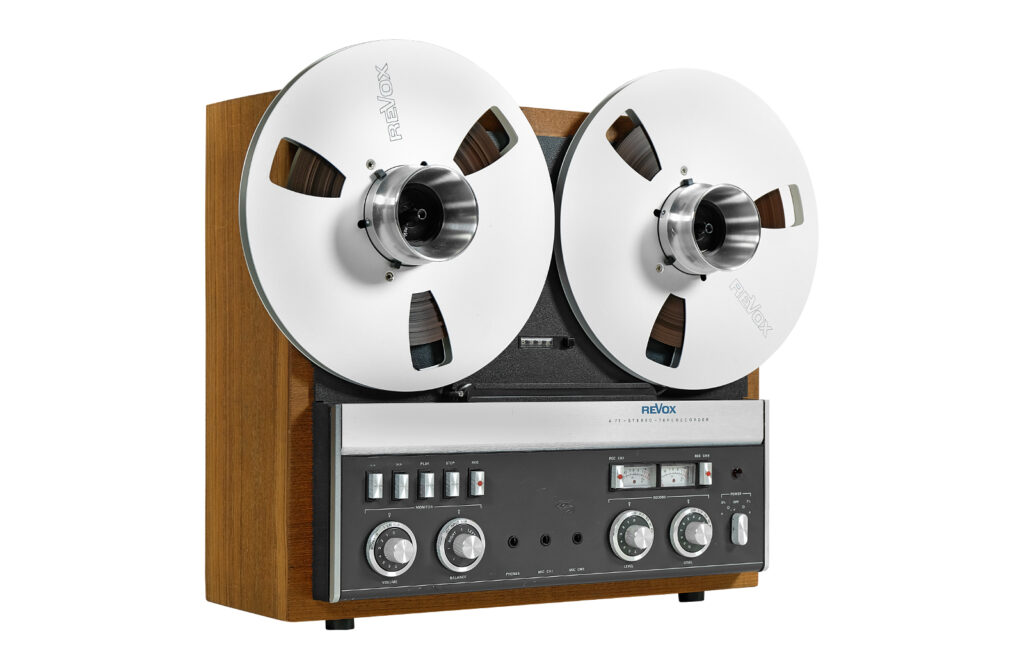
But Willi Studer wanted even better, and so ReVox began production of the B77, first released in 1977. It was a larger and more powerful version of the A77, suitable for home or professional studio use. Just like the A77, it sold very well and remained in production until 1985.

Iconic ReVox Products
Throughout the 1970s and 1980s ReVox produced many iconic Hi-Fi products, in addition to their remarkable open reel tape recorders. Let’s look at a few of those.
ReVox B790 Turntable
By the late 1970s, analog audio and vinyl records were reaching new levels of performance and sophistication. Turntables had evolved with quartz-locked, direct drive motors, and some manufacturers developed “tangential” tonearms to improve the tracking accuracy by maintaining a constant angle between the stylus and the record groove. In 1977, ReVox released the B790 which incorporated all of these features.
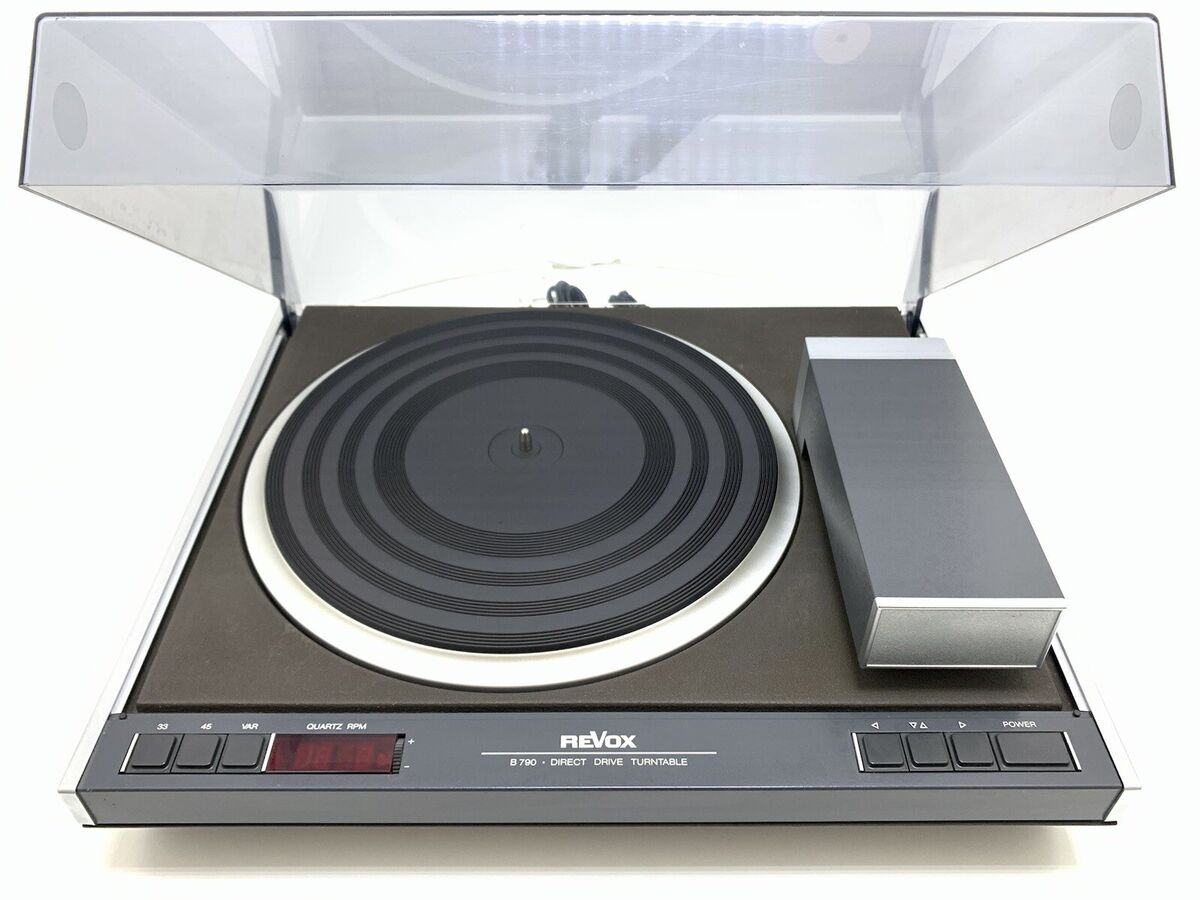
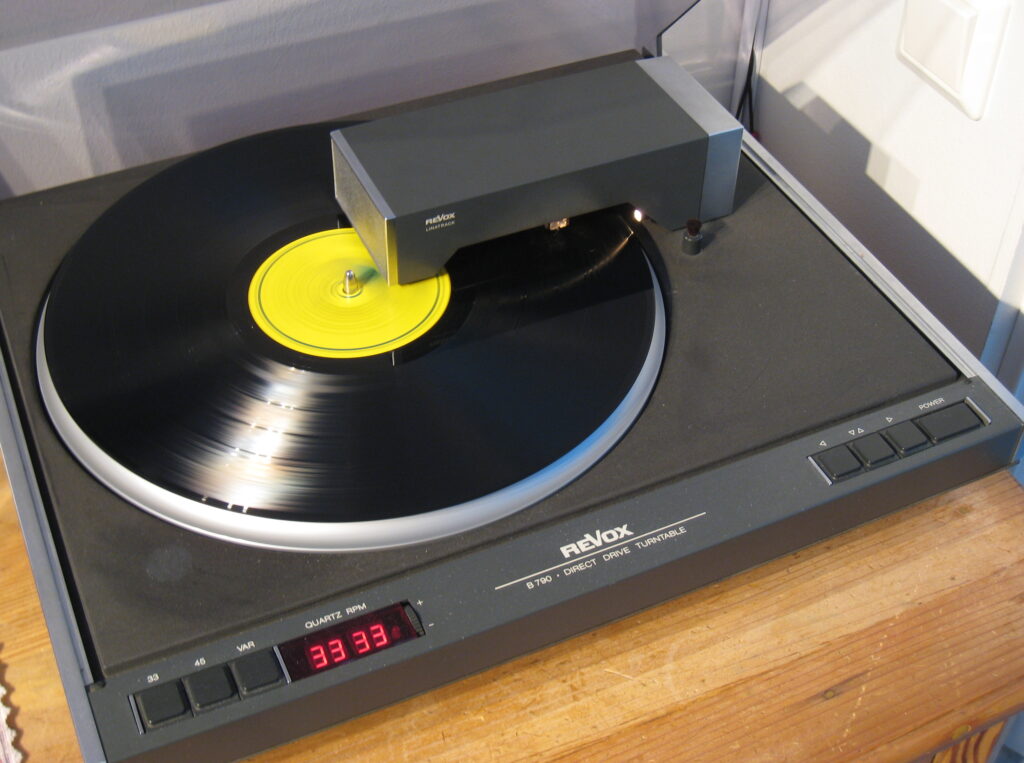
ReVox B710 Cassette Deck
Cassette tapes were an extraordinarily popular music format in the 1970s and 80s, and manufacturers used all of their skills to squeeze Hi-Fi sound out of those little things. While best known for open reel tape recorders, ReVox produced some outstanding cassette decks, including the B710, produced between 1981 and 1984. It was the world’s first cassette deck to employ a four-motor drive, along with Dolby noise reduction and many other features.
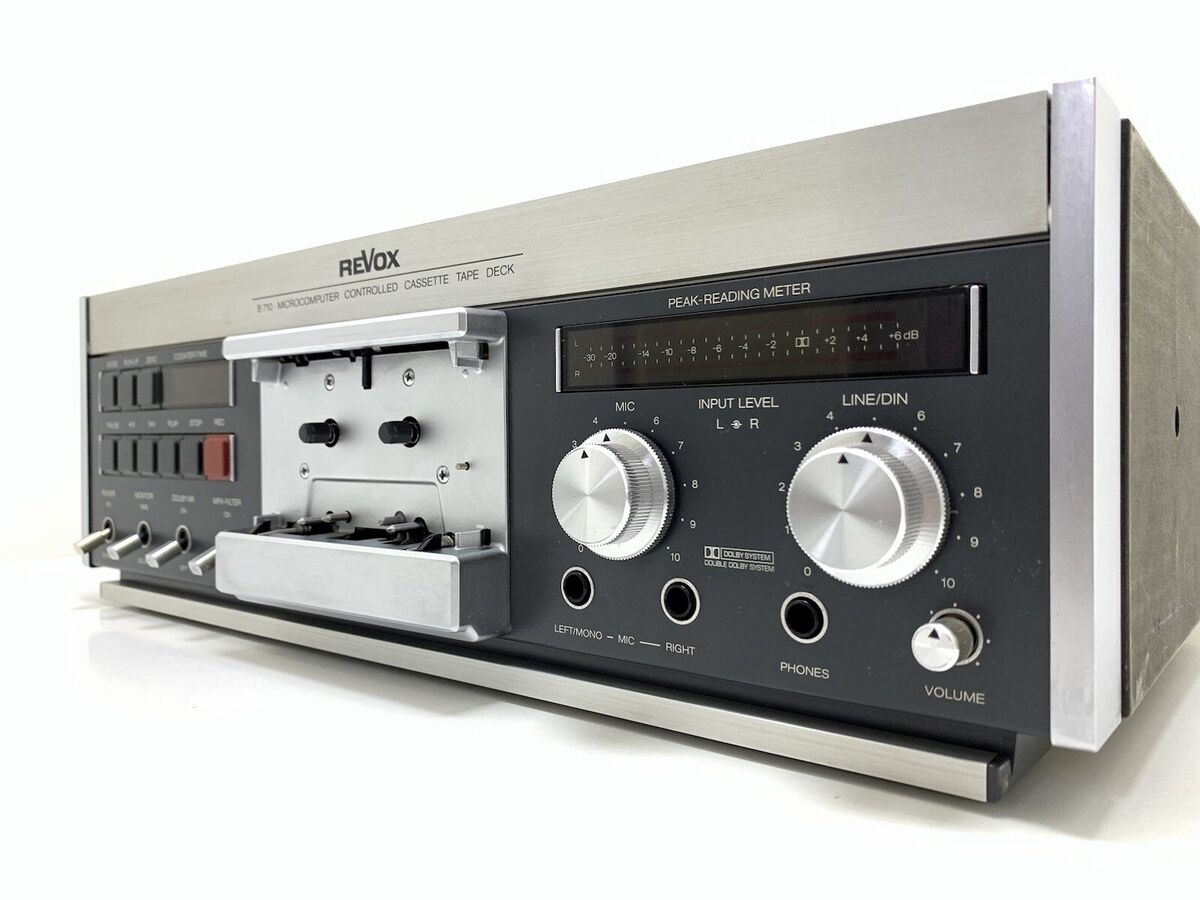
ReVox B226 Compact Disc (CD) Player
ReVox got into the CD business rather late, but they made up for it with this extraordinary machine. Produced from 1986 until 1994, it was superbly made and sounded great.
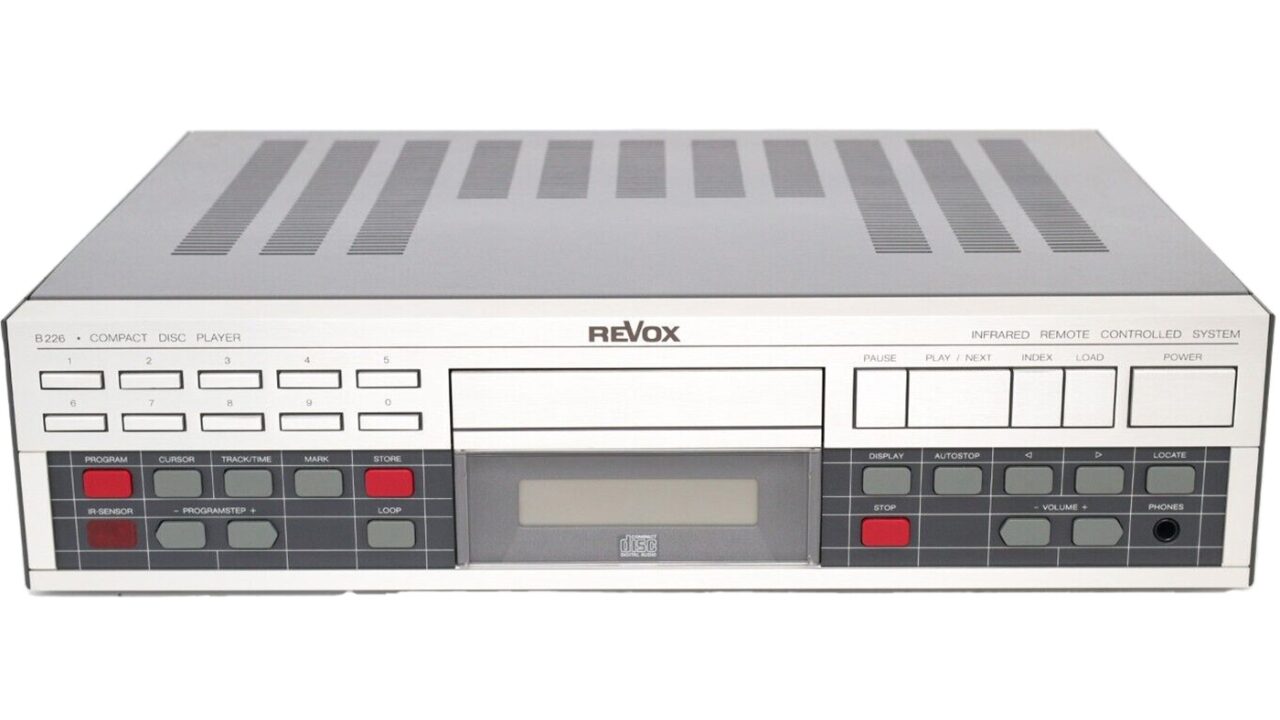
ReVox C270/C274/C278 Open Reel Tape Recorders
Produced in 1988, these were the last generation of ReVox analog open reel recorders. They marked the end of an era, not just for ReVox but for analog open reel recorders in general. Audiophiles and professionals were switching to digital technology and to other recording formats by this time.
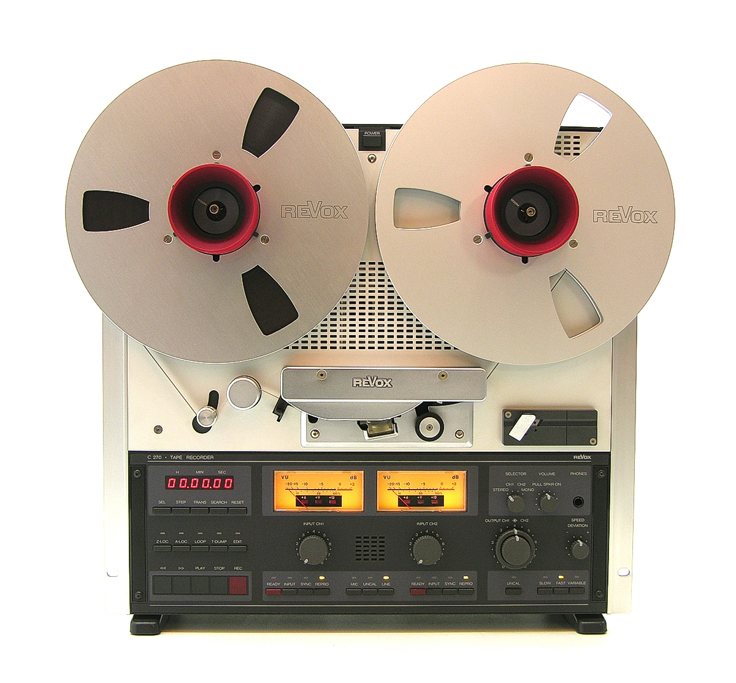
End of an Era and the Passing of Willi Studer
Towards the end of his life, Willi Studer knew that he could not manage the company much longer. So he began searching for a new owner to take over his beloved companies ReVox and Studer. He wanted a Swiss owner, some assurance that the companies would remain based in Switzerland, and other conditions, and so he chose to sell to a Swiss holding company around 1991.
Sadly, the new owners were not able to honor the commitments they had made to Willi Studer, and began making major changes almost immediately. Product lines were eliminated, people were let go, and factories were closed. To make matters worse, in 1994, the two companies were split up and sold again to new owners. The Studer division was sold to an American firm, while ReVox was taken over by a private investor group.
In just a few short years, Willi Studer’s lifetime of work building these iconic brands had come crashing down and there was little that he could do to stop the changes. It must have been a very difficult time for him. Wilhelm “Willi” Studer passed away on March 1, 1996.

Studer and ReVox Today
After the passing of Willi Studer, both of his famous brands Studer and ReVox struggled to survive. The Hi-Fi industry was going through many disruptive changes. The good news is that both Studer and ReVox did survive, and continue to operate today.
The Studer company, which now operates as a division of Evertz, continues to make professional equipment for studios and broadcasters, with a focus on mixing consoles.

If you’d like to see how Willi Studer’s legacy still lives on, some 70 years after the founding of the Studer brand, here’s a link to the Evertz “Studer” website, where you can check out the latest Studer products:
Willi Studer’s other company, ReVox, has also survived and continues to offer superb high end Hi-Fi equipment. The company is headquartered in Switzerland, and manufactures a range of modern Hi-Fi gear including network receivers, turntables, and loudspeakers.
ReVox recently celebrated their 75th anniversary, and to celebrate the occasion, they created some special products. One of them is a 75th anniversary edition of the “Elegance G120” loudspeaker to commemorate Willi Studer’s founding of the company.

ReVox is also offering a 75th Anniversary edition of the B77 recorder in collaboration with the band Yello.
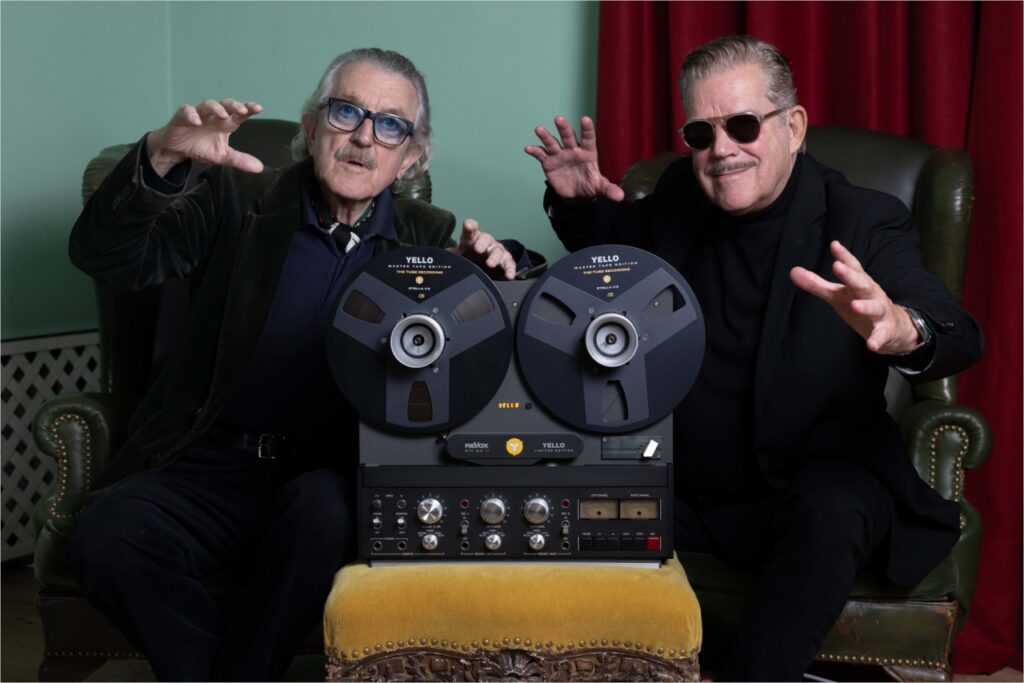
ReVox also celebrate their legacy by selling very limited quantity of their original components, refurbished to original performance and quality. The company can also assist you with getting your classic ReVox equipment repaired or restored here. Here’s a link to their “Classic” website:
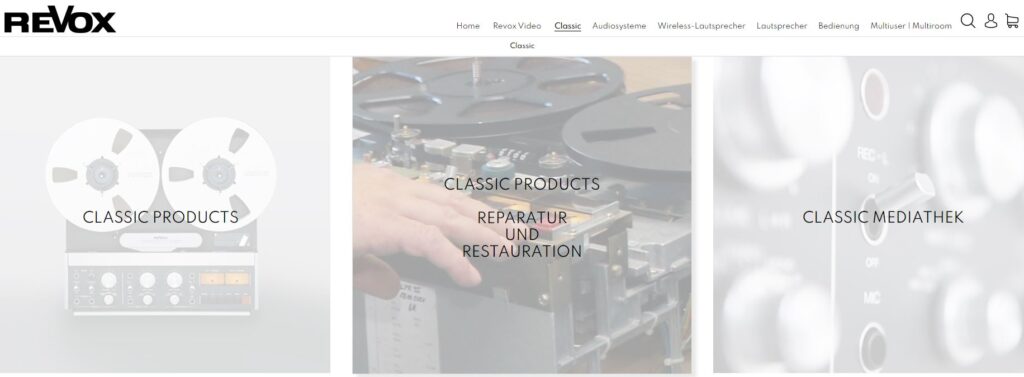
In addition to the classics, ReVox continues to produce modern Hi-Fi equipment using the latest technologies. Here’s a link to the ReVox website if you’d like to see their current product lineup:
Willi Studer’s Impact
Willi Studer has had a great impact, not just on Hi-Fi, but on the world. He boosted the Swiss economy and reputation by starting so many successful businesses. This includes Metrohm, a company that he co-founded way back in 1943, which continues to manufacture high quality test equipment for researchers.
Of course he also started two famous Hi-Fi companies, ReVox and Studer. These companies advanced the state of the art for tape recording and high fidelity equipment for decades. The ReVox “36” and “77” series of recorders were amongst the best consumer recorders in the world for more than 40 years. Studer recorders and related equipment have been used by professionals for more than 70 years.
Willi Studer also made great contributions to the music industry, by producing recording equipment that artists and producers could use to boost their own creativity. Just look at all of the famous record albums that were produced on Studer equipment.
During his lifetime, Studer was recognized by many professional and trade organizations for his contributions, and he received many awards along the way.
For his work as a product designer, in 1970, Studer was named an AES Fellow by the Audio Engineering Society (AES) for his services in the field of magnetic sound and studio technology. Then, in 1978, Studer was awarded an honorary doctorate in technical sciences by the Eidgenössische Technische Hochschule (ETH) university in Zurich. On March 6, 1982, Studer was awarded the Gold Medal of the American Audio Engineering Society.
For his contributions to the world of music, on September 1, 1979, he received honorary citizenship from Mayor Richard Fulton in Nashville, Tennessee, the home of country music.
And for his contribution to industry, on 8 May 1982, Prime Minister Lothar Späth awarded him the Medal of Merit of the State of Baden-Württemberg.
Induction to the Hi-Fi Hall of Fame
Wilhelm “Willi” Studer was a brilliant designer and businessman who changed the world for the better. Starting at the age of 19, right up until his passing at the age of 84, he was passionate about life, music, Hi-Fi, and business. He loved his country of Switzerland and was a great leader to his employees.
During his long career, he and his companies Studer and ReVox created many great Hi-Fi products, from those first Dynavox machines to the last ReVox recorders. He was respected by his peers and earned many awards for his work.
For all of these reasons, Wilhelm “Willi” Studer is inducted into the Hi-Fi Hall of Fame.
